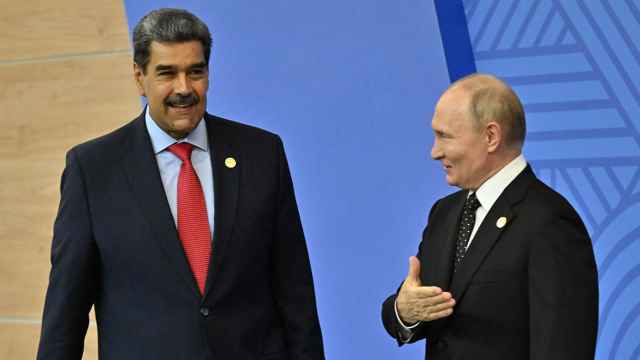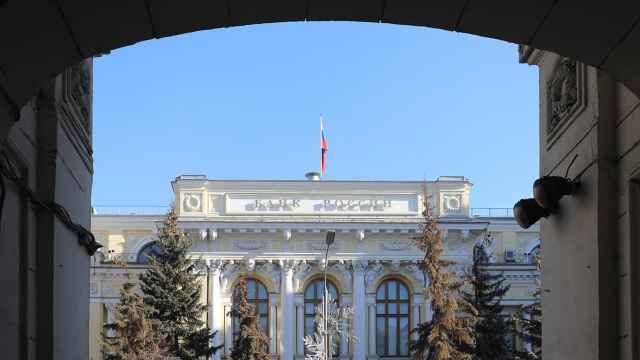The Nord Stream and South Stream pipelines could deprive Ukraine of the equivalent of two-thirds its gas transit volumes when they start up, threatening the country with significant losses in revenues.
Russia supplies Europe with one-quarter of its gas needs, and 80 percent of that gas is delivered via Ukraine. The remaining volumes travel through Belarus.
Russia has assured Ukraine that Nord Stream, its first gas pipeline to Europe that skirts ex-Soviet transit countries, will not affect its transit volumes. These totaled 95.4 billion cubic meters in 2010, providing the state gas company, Naftogaz, with $1.3 billion in net gas transit profit.
But statements made this week in Europe show that both Nord Stream, slated for launch later this year, and the $21.5 billion South Stream pipeline, which aims to transport up to 63 bcm under the Black Sea to Central and Southern Europe, could take away a large chunk of Ukraine's gas transit flows.
Russia has a history of rocky energy relations with both its western neighbors, with a pricing dispute in January 2009 cutting off transit supplies across Ukraine to Europe for nearly three weeks.
The chief executive of Gazprom said Wednesday in Brussels that the gas export monopoly plans to redirect 20 bcm of gas transported through Ukraine to Nord Stream, which runs under the Baltic Sea to Germany.
Meanwhile, a South Stream presentation showed that the pipeline would be two-thirds filled by gas to meet existing Russian supply commitments, implying that this volume will be cut from either Belarus or Ukraine, or both.
"With just Nord Stream alone, Ukraine could be left with 50 bcm to 55 bcm to transit by 2015. But if South Stream is brought into the picture, it will be whittled down to nothing. Ukraine and Belarus will be fighting for the small volume there is left," said Mikhail Korchemkin of East European Gas Analysis.
South Stream denies that it will entirely replace flows via Ukraine.
"Even when South Stream and Nord Stream projects are put into operation, the share of Ukraine in the Russian gas transit capacities to the EU will be tangible," said a presentation delivered by South Stream chief executive Marcel Kramer to European Union officials Wednesday.
Kramer had been seeking to soothe European fears of increasing dependence on Russian gas by saying only one-third of the pipeline's capacity was for new volumes of Russian gas. But in doing so, he raised questions about which pipelines the other 42 bcm would be diverted from.
"Up to two-thirds of South Stream gas pipeline full capacity — serving existing EU gas demands," said Kramer's presentation slides Friday.
Bohdan Sokolovsky, a Ukrainian gas expert and former energy envoy to ex-president Viktor Yushchenko, said Ukraine received $3 billion in 2010 in gas transit revenue for the 95 bcm it shipped to Europe, but $1.6 billon was used to buy extra gas to support its compressor stations.
A Message from The Moscow Times:
Dear readers,
We are facing unprecedented challenges. Russia's Prosecutor General's Office has designated The Moscow Times as an "undesirable" organization, criminalizing our work and putting our staff at risk of prosecution. This follows our earlier unjust labeling as a "foreign agent."
These actions are direct attempts to silence independent journalism in Russia. The authorities claim our work "discredits the decisions of the Russian leadership." We see things differently: we strive to provide accurate, unbiased reporting on Russia.
We, the journalists of The Moscow Times, refuse to be silenced. But to continue our work, we need your help.
Your support, no matter how small, makes a world of difference. If you can, please support us monthly starting from just $2. It's quick to set up, and every contribution makes a significant impact.
By supporting The Moscow Times, you're defending open, independent journalism in the face of repression. Thank you for standing with us.
Remind me later.





